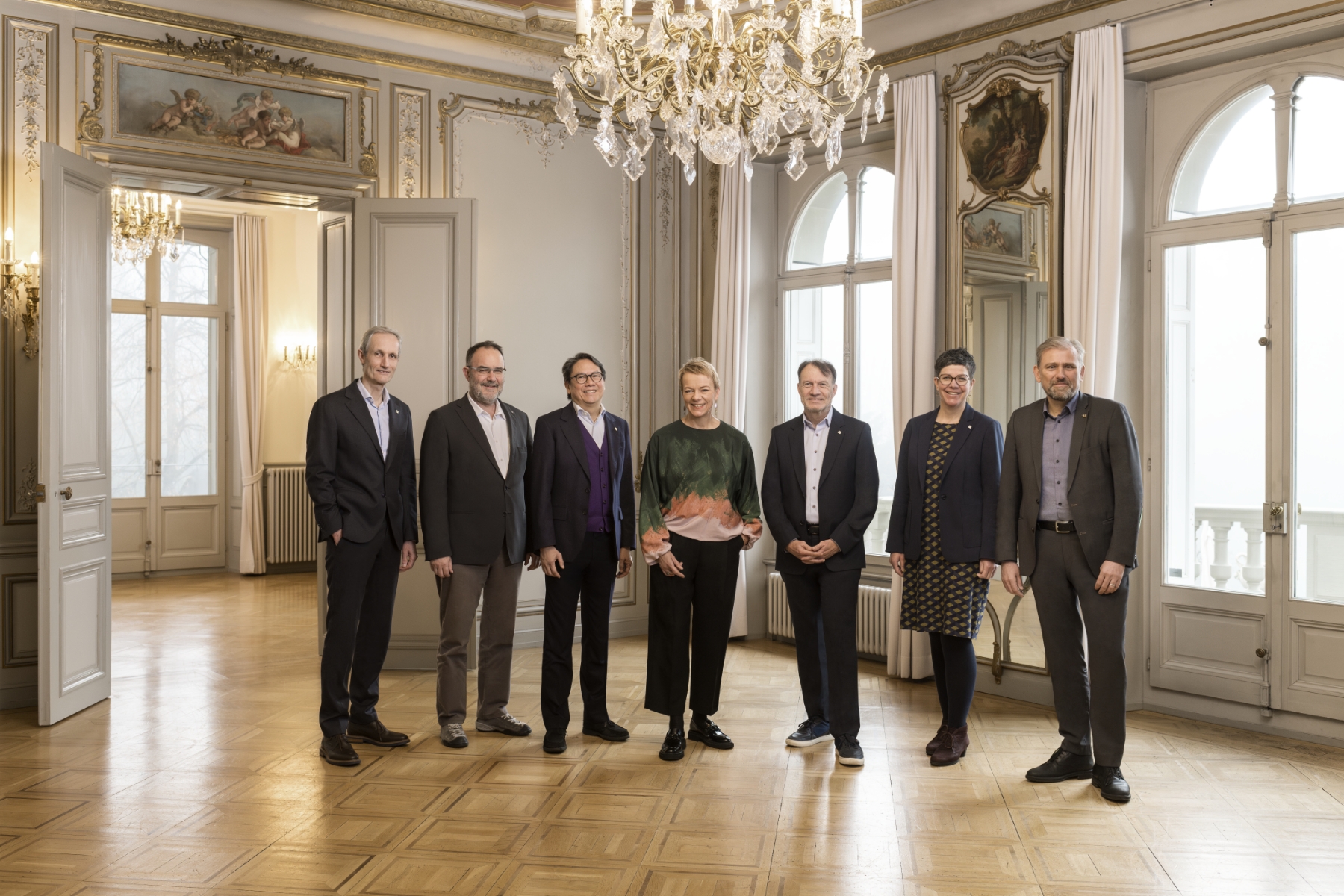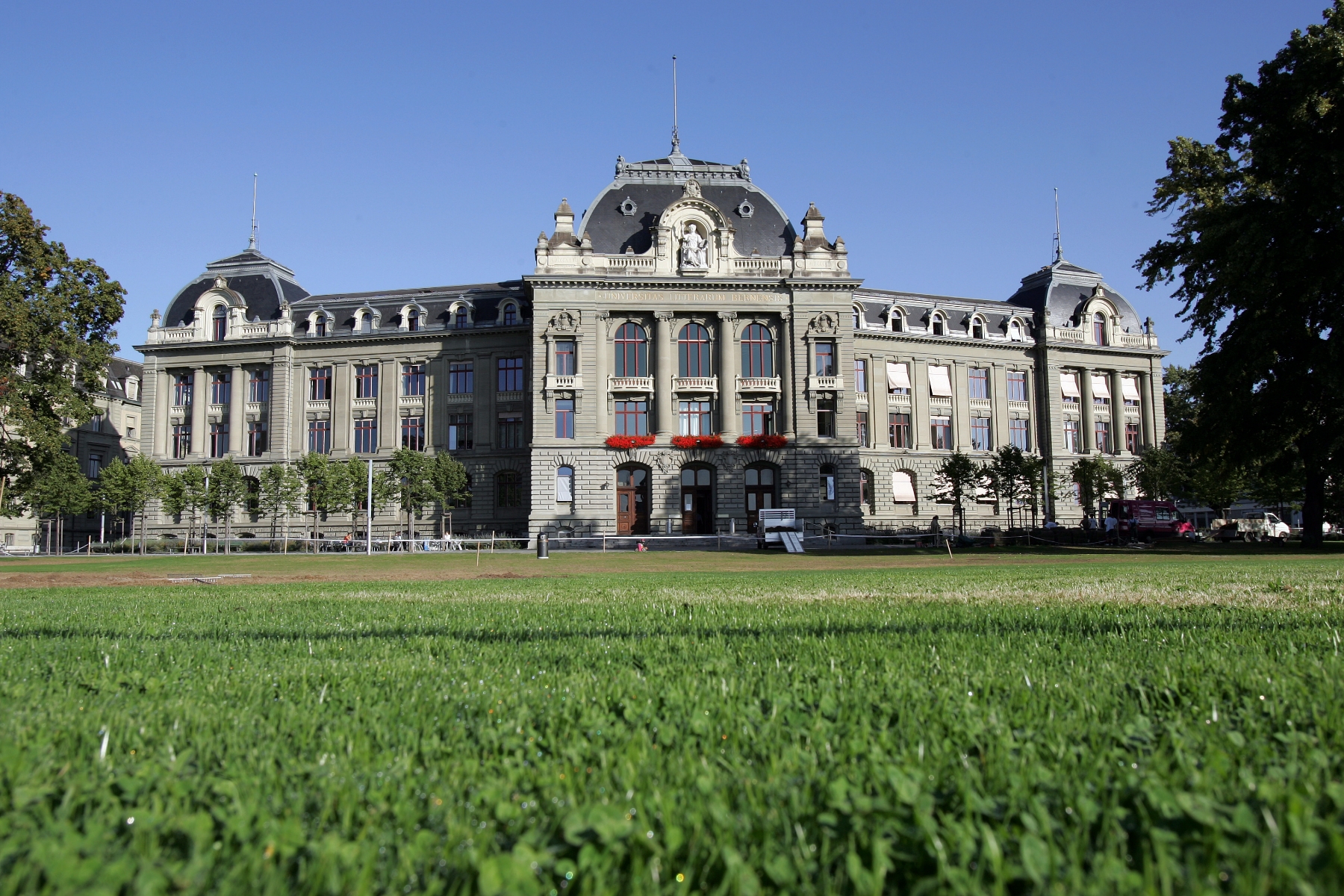University of Bern posts deficit of CHF 37.1 million
Despite challenging conditions, the University of Bern conducted world-class research and registered a great deal of interest in its degree programs over the course of the past year. Other topics impacting the University included academic freedom under pressure, the sluggish pace of spatial development and shortfalls in basic funding, as can be seen in the 2024 annual report.
The Canton of Bern’s contribution in the 2024 reporting year amounted to CHF 334.1 million, with total revenue of CHF 982.8 million. The University of Bern generated a total deficit of CHF 37.1 million in its accounts. There was a loss of CHF 53.4 million in basic funding. Another year with loss resulted in a balance sheet where basic funding showed negative equity for the first time.
Competitiveness being put to the test
Reliable basic funding means that the University of Bern can continue to flourish in the higher education environment. But according to Markus Brönnimann, Director of Administration: “This financial foundation must keep pace with the trend of student enrollment and developments in the global academic landscape. That’s not currently the case, however, since the funding we received didn’t fully cover the salary measures passed by the canton or the cost-of-living adjustment. At the end of the day, that’s the reason for the structural deficit in the University’s budget.” The University’s competitiveness also hinges on its facilities, yet Brönnimann says this is another area where the University is dependent on the Canton of Bern and lags behind in key disciplines such as medicine and chemistry.
Different approaches were pursued in 2024 that were aimed at safeguarding the University’s long-term attractiveness. As a member of ENLIGHT, an alliance of research-intensive full-scale universities, the University of Bern develops flexible forms of international exchanges in research and teaching that feature joint curricula and degrees. The University of Bern’s course catalog was linked to the other ENLIGHT universities in 2024 – an important step toward making the goal of a shared campus a reality.
Key research infrastructure was also bundled in the core facilities, a centralized structure that facilitates access to costly or complex equipment and the corresponding expertise. This approach boosts both the quality and efficiency of research while promoting interdisciplinary synergies. Furthermore, the University revised its strategy of climate neutrality and now focuses on a University-wide roadmap drawn up within the scope of a participatory process instead of on carbon offset certificates. Last but not least, the vice-rectorates were restructured to more strongly emphasize and pool efforts in one special strategic area: the promotion of early-career researchers.
Academic freedom as the ultimate goal
The consequences of conflicts around the world last year, notably Russia’s war of aggression against Ukraine and the war in the Middle East, did not leave the University of Bern unscathed. Academic freedom also came under increasing pressure in this context. With its unequivocal stance, the University of Bern stands firmly alongside researchers, as Rector Virginia Richter explains: “Defending academic freedom is one of the University’s top-most goals. We can do this most effectively by opposing polarization and instead advocating differentiation, a diversity of voices, and composure.”
Excellence in teaching and research
The University of Bern conducts world-class research work and belongs to the top one percent of universities worldwide. For example, researchers from the University of Bern are involved in NASA’s Europa Clipper mission to Jupiter, which will look for evidence of extraterrestrial life on the ice-encased moon Europa. An international team of scientists, including several from Bern, also successfully drilled a 2,800-meter-long and over 1.2-million-year-old ice core in the Antarctic containing climate information from the past 1.5 million years. The University demonstrated over the past year how it can directly benefit society, with one example being its launch of the Bernometer weather app, which issues heat warnings for neighborhoods in Bern to help mitigate health risks. In the area of sleep research, 2024 brought the conclusion of the Decoding Sleep research project, which yielded new insights into the function and regulation of sleep-wake-rhythms and will help improve sleep disorder counseling.
Interest in studying at the University of Bern still remains high. 19,608 students were enrolled at the University of Bern in the fall semester of 2024 and 4,312 high school students from throughout Switzerland and abroad attended the 2024 Bachelor’s open days at the University of Bern.
Please see the corresponding website for the full set of statistics, information about the latest developments, and reports.
2025/05/07


